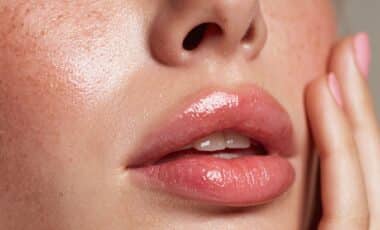
 By Terence Lim September 05, 2019
By Terence Lim September 05, 2019
Rolex, a firm supporter of explorers and individuals to discover more about planet Earth and to find ways to preserve the natural world, has launched the Perpetual Planet campaign this year to further its commitment to maintaining the well-being of the earth.
One of the three key pillars of the campaign is the Rolex Awards for Enterprise, an awards to foster entrepreneurship, advance human knowledge and protect our cultural heritage and the environment. (The other two are marine conservationist Sylvia Earle’s Mission Blue initiative and Rolex’s deepened partnership with the National Geographic Society.)
After few rounds of presentations and selection by an independent jury, five laureates were unveiled in a ceremony in Washington in June. Here, three of the laureates—Brazilian fisheries biologist João Campos-Silva, Ugandan IT specialist Brian Gitta, Canadian entrepreneur and molecular biologist Miranda Wang—reveal more about their projects and their ambitions to solving earth’s key challenges.



Malaria is a life-threatening disease prevalent worldwide. The key to treating it is early detection, but many, especially children, die from it because accurate test results take time to process, which leads to a delay in treatment delivery. The Ugandan technologist, who is the co-founder and chief executive of software company ThinkIT, is working on a novel, low-cost, portable device that uses light and magnets to give a reliable reading without drawing any blood. The Matiscope, as it is called, is currently in phase two clinical trials with some 300 patients testing its reliability.
The device can be supplied to the district and national hospitals, which are more well-funded. Right now, it’s 80 per cent accurate, and we need and are aiming to get it to be 90 per cent accurate.
— Brian Gitta



Much of the plastic waste we produce cannot be recycled, ending up in landfills and polluting the environment. The Canadian entrepreneur and molecular biologist, who is now CEO and president of plastic recycling technology firm BioCellection, has invented an upcycling process that breaks non-recyclable polyethylene plastic waste down into simpler chemical compounds, which can be used in industrial and consumer products. “We’re taking plastics that are not recyclable today. That means there are currently no economical technologies to turn these plastics into a valuable product. So we take things like dirty plastic bags, single-use packaging materials, and we transform them into valuable chemicals which can then be used to make durable materials for products that we all love and use every day.”
We’ve invented a new process that’s sustainable and economical for making high-value industrial chemicals from these plastics, and the product is of the same quality as that made from virgin oil.
— Miranda Wang



The giant arapaima is the world’s largest scaled freshwater fish and it faces extinction due to overfishing and various human impacts. The Brazilian fisheries biologist at Universidade Federal de Alagoas in Brazil wants to save it by working closely with local communities and fishing leaders to manage its numbers. After seeing a 30-fold recovery in arapaima numbers in the Juruá River in South America as part of Projeto Médio Juruá, he plans to take the same project to 60 other communities and help save the livelihoods, food supply and culture too.
Arapaima management brings in good income [for the local communities], and protects the forest and ensures its development. This model is not a top down strategy, but a bottom-up one.
— João Campos-Silva
Related: Rolex Testimonee Sylvia Earle: What Can You Do Every Day To Make The Planet Perpetual?
34, 000 Number of applicants since the launch of the Rolex Awards in 1976
191 Number of countries represented by the applicants
150 Number of laureates selected
24 Age of the youngest laureate
74 Age of the oldest laureate






